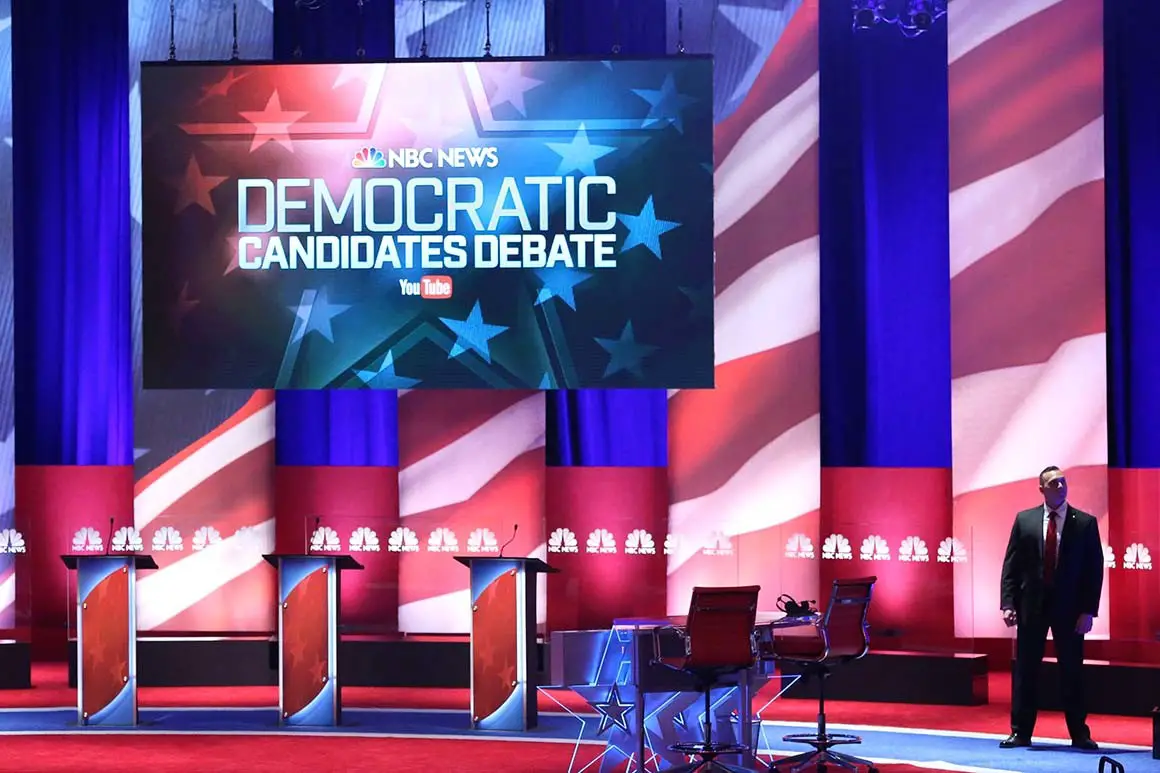As reported previously, the deadline for candidates to qualify for the first Democratic debate is today, June 12. According to reports, campaigns have until midnight Wednesday to produce fundraising or polling numbers that could qualify them for the first debate.
The campaigns must certify their numbers and provide them to the DNC by 11 am ET on Thursday to meet the deadline and qualify for a debate spot.
First Democratic debate candidates
According to the rules set forth by the DNC, here are the candidates that currently qualify for a debate spot. The current list shows that 20 campaigns make the cut at the time of writing this story and it’s likely that this number will remain the same into Thursday.
Meeting Polling AND Fundraising Threshold
1. former Vice President Joe Biden
2. New Jersey Sen. Cory Booker
3. South Bend Mayor Pete Buttigieg
4. Former Housing and Urban Development Secretary Julián Castro
5. Hawaii Rep. Tulsi Gabbard
6. New York Sen. Kirsten Gillibrand
7. California Sen. Kamala Harris
8. Washington Gov. Jay Inslee
9. Minnesota Sen. Amy Klobuchar
10. former Texas Rep. Beto O’Rourke
11. Vermont Sen. Bernie Sanders
12. Massachusetts Sen. Elizabeth Warren
13. tech entrepreneur Andrew Yang
14. motivational speaker Marianne Williamson
Meeting Polling Threshold
15. New York Mayor Bill de Blasio
16. former Maryland Rep. John Delaney
17. former Colorado Gov. John Hickenlooper
18. Ohio Rep. Tim Ryan
19. California Rep. Eric Swalwell
20. Colorado Sen. Michael Bennet
Not Yet Qualified
21. Montana Gov. Steve Bullock
22. Massachusetts Rep. Seth Moulton
23. Miramar, Florida, Mayor Wayne Messam
24. former Alaska Sen. Mike Gravel
NBC to hold debate night lottery
The next phase of this process happens on Friday, June 14, when NBC has disclosed that a “lottery” will take place at NBC headquarters in New York to determine which candidates will appear on which night.
The field will be broken up in such a way to ensure that neither debate night will be filled only with lower-polling candidates, though the full details of how this debate lottery will take place remain unknown. The goal of the process is to make both nights, June 26 and 27, must-see events with a good mix of candidates on each night.
DNC staffers told representatives from the various presidential campaigns of the plan to hold the lottery at NBC during a conference call last week, according to sources with knowledge of the call. The campaigns have been invited to send their own representatives to be on-site and monitor the results of the lottery which will ultimately determine which night the candidates will appear.
Candidates voice anger over DNC debate rules
While most campaigns will be satisfied with how the debate rules will shake out since every major candidate with decent polling and fundraising will easily make the cut, some campaigns are crying foul over the rules and lashing out at the DNC for setting arbitrary numbers as a standard:
“It’s all just completely arbitrary,” Colorado Sen. Michael Bennet said as he campaigned in New Hampshire. Bennet, who’s yet to secure a spot in the first two debates and would face an uphill battle to meet the higher standards for September, called the process “a challenge for democracy.”
Former Maryland Rep. John Delaney wrote a letter to Perez demanding an account of how DNC sets debate parameters.
“I just think we deserve transparency,” Delaney told The Associated Press. “You’re acting as a gate keeper. … These people, in many ways, are the most important people in determining who our democracy is.”
Delaney and Bennet are basically non-existent on the national stage, and neither of them has a shot in the primary. However, this year, it seems that every Democrat wishing to participate believes they are owed the same privileges as campaigns that actually seem to appeal to voters.
Advisers to several other candidates say they are quietly talking to one another to explore ways to push back on rules for later debates they say could force campaigns to focus too much on fundraising at the expense of their candidates actually reaching voters.
By the time the later debates roll around, this matter should be less of an issue. There will inevitably be fewer candidates in the field by the time the third debate rolls around in September which will help the issue resolve itself. However, there always seems to be controversy every presidential as more and more politicians decide to launch losing campaigns and expect to be treated as front runners.
Donate Now to Support Election Central
- Help defend independent journalism
- Directly support this website and our efforts
